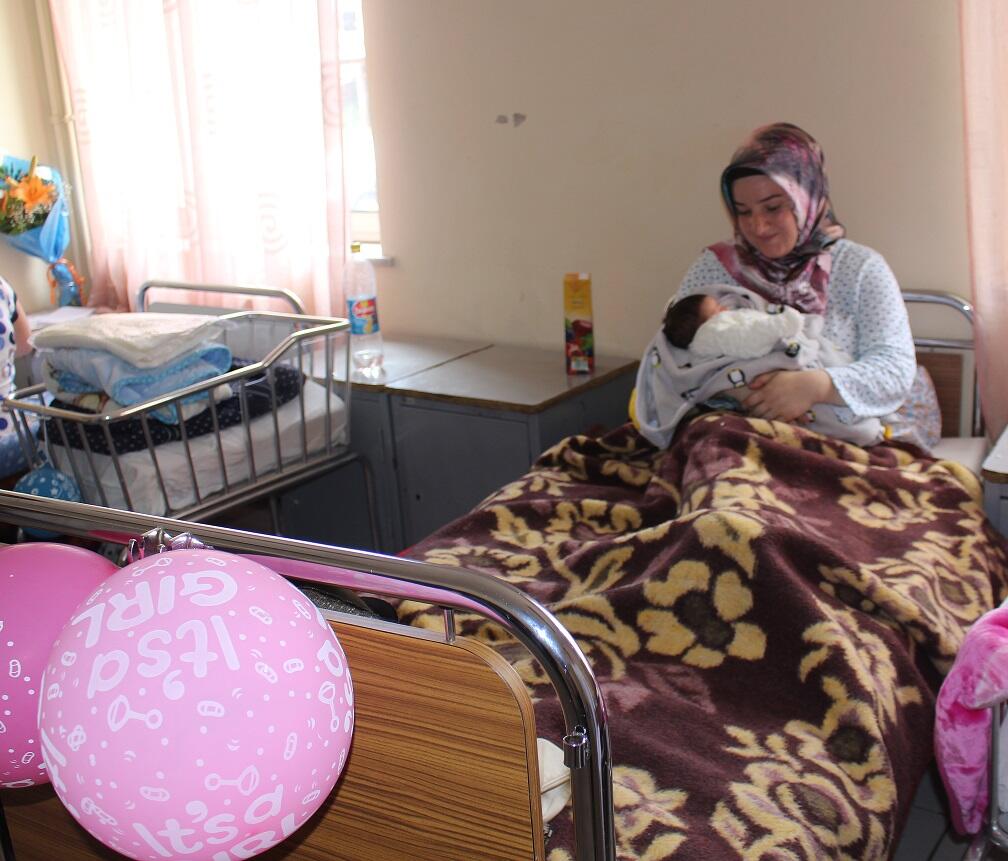SHKODËR, Albania — Regional maternity hospitals in Albania are drawing on input from multi-disciplinary teams of doctors, nurses and midwives on how they handle cases of severe complications in pregnancy and childbirth and how to adopt analysis of “near-miss” cases to the benefit of improving perinatal care, as a routine procedure in their hospitals. This UNFPA-supported initiative is already making a difference for the mothers and newborns they serve.
“This initiative has emphasized the importance of working in a team, and put mothers and newborns at the focus of our work,” says neonatologist Dr. Dhurata Kuci, the Chief of Neonatology Services at the Shkodër Maternity Hospital in Albania. “It also evaluates mothers’ satisfaction with our work. The overall impact is happier mothers and healthier babies.”

Dr. Dhurata Kuci, Chief of Neonatology Services at Shkodër Maternity Hospital in Albania.
The effort to improve the quality of care and standardize services for perinatal care based on evidence-based best practices is being carried out in selected regional maternity hospitals of Albania by UNFPA in close partnership with the Ministry of Health, the National Centre for Quality, Safety and Accreditation of Health Institutions (NCSQA), and other key stakeholders. The approach is based on the Beyond the Numbers (BtN) methodology for reviewing maternal deaths and complications.
The pilot use of multi-level peer-review teams has been acknowledged by hospital managers in Albania as a good model for focusing all hospital staff — including both clinical and management teams — on adopting best practices, boosting professionalism and improving quality of care at every level for mothers and newborns. There is also a growing awareness emerging in the piloted hospitals of the necessity for a stronger focus on patient needs, and of how the BtN teamwork initiatives can improve the quality of care. The self-assessment approach is in accordance with the long-term strategy of the Ministry of Health and the objectives of the NCSQA: achieving harmonization with European standards for health care.

Dr. Saimir Selmanaj (first from right), Head of the Shkodër Maternity Hospital, and his team.
Going forward – A Prospectus for Continuous Improvement of Quality of Care
1. A toolkit for the consolidation of the tool as an institutionalised approach to learning, and using standards from clinical guidelines and local protocols needs to be developed at the NCQSA and signed off at ministerial level as a Standard Operating Procedure for all maternity hospitals in Albania.
2. Ensuring continuity of health care for pregnant women requires the design and establishment of an integral framework of cooperation and interaction between primary health care and hospitals and all the partners working in the field of mother and child health care.
3. There is a pressing need to provide an efficient referral system with focus maternal and newborn health;
4. There is a need to nationally unify the document: Patients’ Record (nurses and doctors records) and to carry out a review of the actual documents and confrontations with the need for ‘making change happen’.
5. The team of experts has identified a collaborative model to work with the Faculty of Science of Technology Medicine to include Effective Perinatal Care into the curricula of midwifery and to see the possibility of the university’s direct contribution in advancing continuing professional education in the hospitals.


